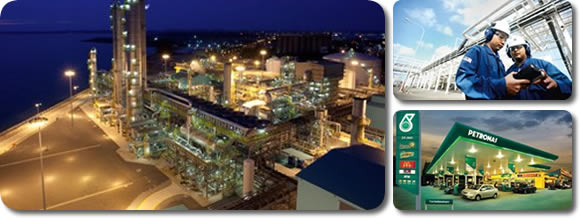Petronas to cut annual dividend to Govt
(Bloomberg) — Petroliam Nasional Bhd (Petronas) plans to lower its annual dividend paid to the Government to RM28bil this year as it holds onto cash to help reverse a production slump.

“We need to grow,” group CEO Datuk Shamsul Azhar Abbas said in a recent interview. “Energy reserve is not finite, it will deplete. You can’t be sucking us dry.”
Petronas is the biggest single contributor to government revenue, having paid RM30bil in dividends for each of the past three financial years. Shamsul, who took over as CEO in 2010, wants to retain more of the company’s profits to invest in exploration after seeing Malaysia’s oil and gas production fall for three straight years.
It plans to spend a record RM300bil over five years to replenish the country’s maturing reserves and counter mounting exploration costs. It has stepped up offshore drilling with local and overseas partners, including Petrofac Ltd, to boost the nation’s underground holdings of oil and gas.
Malaysia, South-East Asia’s biggest oil and gas producer after Indonesia, saw production fall to 1.61 million barrels of oil equivalent a day in the year ended March 31, 2011, from 1.63 million a day a year earlier, according to the company’s annual report.
Petronas might be able to reverse slumping production by 2014 as output was expected to be boosted by deepwater developments offshore in Sabah, Shamsul said.
The company would gradually switch to a dividend payout ratio of 30% of profit to reflect broader oil industry practices, he said.
Crude oil reserves rose 1% to 5.86 billion barrels as of Jan 1, 2011, with an expected lifespan of 24 years, the Government said in October. Gas reserves grew 0.3% to 88.9 trillion cu ft, enough to last 39 years, one year more than previously projected.
In another development, South Africa Energy-Department director-general Nelisiwe Magubane said the shift by Petronas’ Engen unit in South Africa from using oil imported from Iran, which last year was the source of 26% of crude imports, is expected to cost 300 million rand (RM125mil).
Engen, which operates South Africa’s second-biggest crude refinery and gets about 80% of its supply from Iran, has “not yet asked” the government for financial assistance to help with the conversion, Magubane told reporters in Pretoria yesterday. Engen “has not indicated” it will have to close the refinery, she said.

